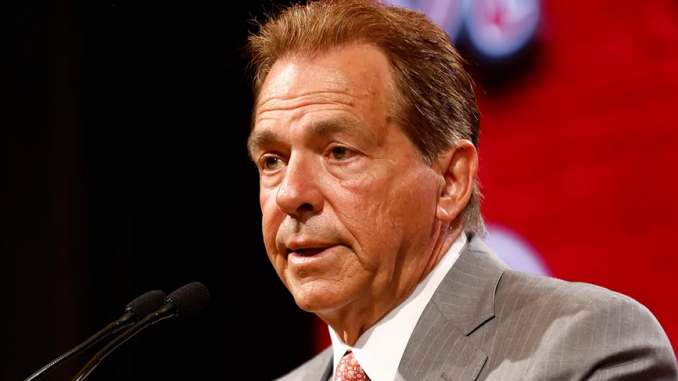
College football’s simmering tensions over Name, Image, and Likeness (NIL) exploded into national headlines this week after legendary former Alabama head coach Nick Saban accused a rival SEC coach of “buying every player” on his roster with a massive $25 million NIL war chest.
The comments, delivered during a fundraising event in Birmingham, have ignited a public feud, drawn responses from across the college football world, and reportedly triggered NCAA interest in the growing influence of booster-backed collectives.
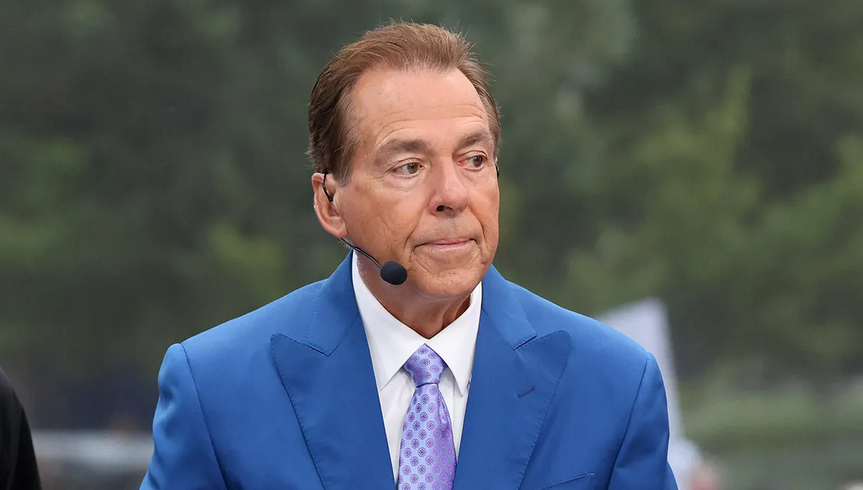
Saban, who retired from coaching in early 2024 but remains deeply involved with Alabama’s athletic administration and NIL advisory efforts, didn’t mince words when discussing the state of modern recruiting.
“You’ve got programs out there spending $25 million on NIL,” Saban told the audience. “They’re not recruiting anymore—they’re buying every player. That’s not what college football was meant to be.”
While Saban stopped short of naming the program outright, his comments came just a day after multiple reports revealed that Texas A&M—now coached by Mike Elko—had assembled one of the largest NIL budgets in the country for its 2025 recruiting class. Within hours, fans and analysts alike connected the dots.
Texas A&M’s collective, 12th Man+, recently unveiled what insiders have called “the most aggressive NIL structure in the nation,” offering recruits multi-year marketing guarantees that, according to reports, could total over $25 million in commitments for the incoming class.
In response to Saban’s remarks, Elko fired back in an interview with the Houston Chronicle, saying:
“Coach Saban can say whatever he wants, but our players earn their NIL deals. Nobody’s buying anything. We’re following the rules, and maybe some people just don’t like losing ground in recruiting.”
The war of words quickly escalated as Saban, known for his careful choice of language, doubled down in a follow-up radio appearance on The Paul Finebaum Show.
“If we’re going to have a free-for-all, then let’s call it what it is,” Saban said. “But don’t pretend this is about education or opportunity anymore. Some schools have turned college football into an open auction.”
Finebaum, never one to shy away from controversy, described Saban’s comments as “the loudest warning shot yet fired by a man who helped build the modern SEC empire.”
Fallout Across the SEC
Within 24 hours, the feud had spilled into every corner of the college football ecosystem. Athletic directors, boosters, and fans took to social media, sports radio, and press conferences to weigh in.
LSU head coach Brian Kelly expressed sympathy for Saban’s frustrations but stopped short of taking sides. “NIL is here to stay,” Kelly said. “But there needs to be a uniform structure. Otherwise, it’s chaos.”
Meanwhile, Ole Miss coach Lane Kiffin, ever the provocateur, took to X (formerly Twitter) to post a single word: “Popcorn.”
The NCAA, which has struggled to regulate NIL activity since its introduction in 2021, released a short statement Friday confirming that it was “reviewing recent public claims regarding NIL expenditures and compliance with existing guidance.” The statement stopped short of mentioning any program by name but acknowledged “heightened concerns regarding inducement-based recruiting practices.”
This is not the first time Saban has raised alarms about NIL excesses. Back in 2022, he famously accused Texas A&M, then under coach Jimbo Fisher, of “buying every player” in their recruiting class—a remark that sparked one of the most heated public exchanges in SEC history. Fisher, in turn, called Saban’s comments “despicable” and “narcissistic.”
While Fisher is no longer at the helm in College Station, Saban’s latest critique seems to suggest that little has changed. And now, with the NIL economy ballooning into a multi-billion-dollar industry, the former Alabama coach’s words have renewed debate over whether college football is losing its traditional balance.
According to data from On3 Sports, NIL collectives at major programs like Texas, Oregon, Miami, and Texas A&M are now operating with annual budgets exceeding $20 million—largely fueled by wealthy donors and corporate partnerships. In contrast, mid-tier programs struggle to maintain even a fraction of those resources, widening the talent gap between college football’s haves and have-nots.
“College football is drifting toward a professional model without professional oversight,” said Sports Illustrated analyst Pat Forde. “And when someone like Nick Saban—who benefited from the old system—starts sounding the alarm, people tend to listen.”
The NCAA’s review may or may not yield tangible penalties, but insiders suggest that the controversy could accelerate efforts to bring NIL under centralized regulation. Proposed legislation in Congress would give the NCAA broader authority to enforce transparency and spending limits among school-affiliated collectives.
As for Saban, sources close to the 73-year-old coach say he has no plans to walk back his comments. “He feels an obligation to protect the sport,” one Alabama staffer said. “Nick believes college football is at a crossroads—and if no one speaks up, it’ll be unrecognizable in five years.”
Meanwhile, in College Station, the Aggies appear unfazed. “We’ll let our results speak for themselves,” Elko told reporters Saturday. “And we’ll see everybody in November.”
With that, the “Recruiting Wars” are once again raging through the heart of the SEC—only this time, the stakes are not just championships, but the very soul of college football itself.
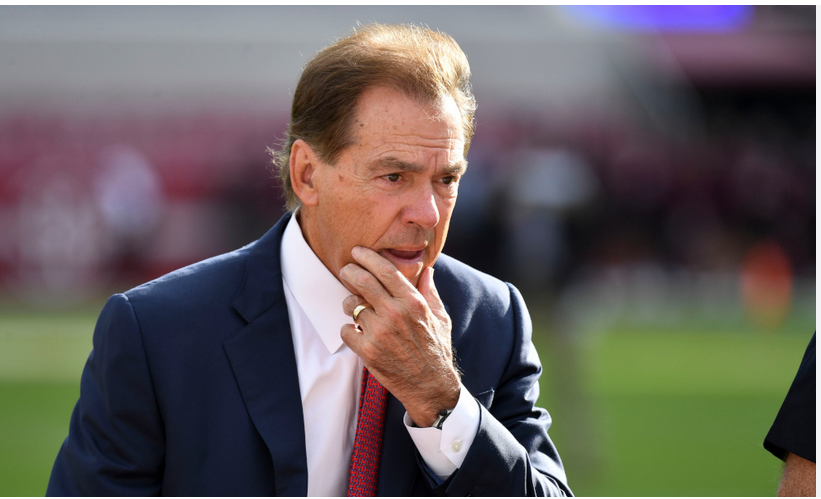
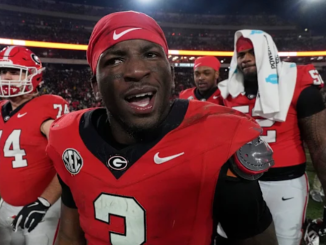
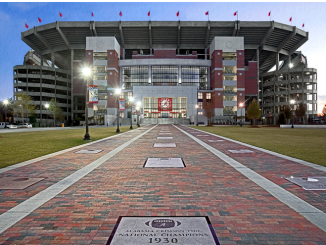
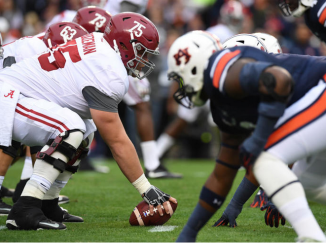
Be the first to comment